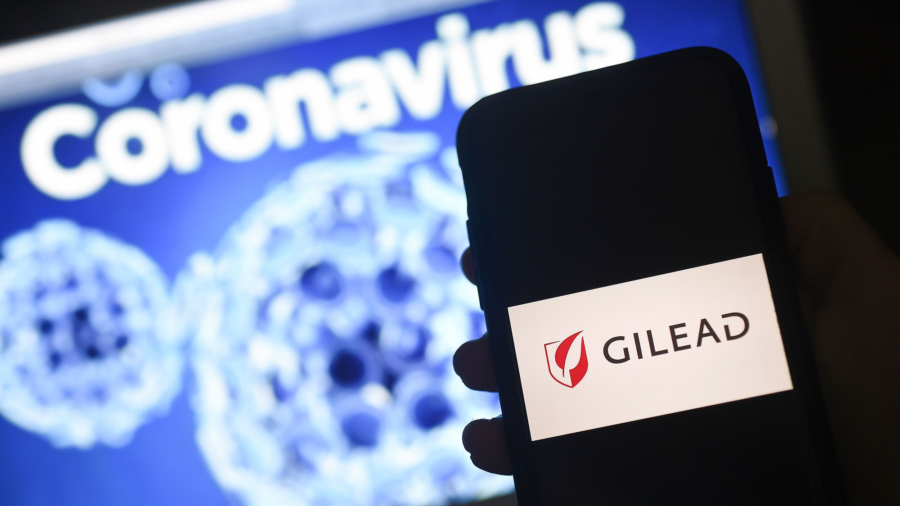U.S. biotechnology firm Gilead Sciences has announced it will be donating 1.5 million doses of its experimental anti-CCP virus drug, remdesivir, for compassionate use, expanded access, and clinical trials.
The doses are intended for patients with severe symptoms of CCP virus, commonly known as novel coronavirus, who will receive them through daily intravenous infusions in a hospital setting. They could be part of treatment courses for as many as 140,000 patients, according to a statement by Gilead CEO Daniel O’Day on April 4.
“Over the course of the past week, Gilead has been working in consultation with regulatory authorities to establish additional expanded access programs for remdesivir, our investigational medicine for COVID-19,” O’Day said.
“The programs enable hospitals or physicians to apply for emergency use of remdesivir for multiple severely ill patients at a time. These are patients who cannot take part in clinical trials and where the word ’emergency’ is all too real for them, their families, and the healthcare providers advocating on their behalf.”
The company has also “set an ambitious goal” of boosting its supply of remdesivir to more than 500,000 treatment courses by October and more than 1 million treatment courses by the end of this year. Production time has also been accelerated and, as a result, the end-to-end manufacturing timeline has been reduced from approximately one year to around six months, according to the statement.

“Our efforts to increase supply continue with a strong sense of urgency. There is a long way to go and a lot of work to be done but I’m pleased that, despite the challenges we have been able to get supply levels to where they are today in a very short space of time—through the resourcefulness of our teams, creative approaches, and collaboration,” O’Day said.
Remdesivir, which has not been given regulatory approval, was initially developed by Gilead as a potential treatment for the Ebola virus. O’Day noted that the safety and efficacy of the drug are not yet known and that “while we feel the greatest sense of urgency in our work with remdesivir, we must take the responsible, ethical approach of determining whether it is indeed a safe, effective treatment.”
Multiple clinical trials for the drug are underway, with thousands of patients with CCP virus participating across the world, the CEO said.
Remdesivir is already being tested in clinical trials in China and the results from those trials are expected in April, a Gilead spokesman told The Epoch Times in an email. The drug received an endorsement from World Health Organization expert Bruce Aylward on Feb. 24.

It was used in the treatment of the first American patient with the virus, according to a case study published in the New England Journal of Medicine on March 5. The patient’s clinical condition improved a day after receiving the drug intravenously and he was asymptomatic aside from intermittent dry cough and rhinorrhea. Researchers noted that randomized controlled trials are needed “to determine the safety and efficacy of remdesivir and any other investigational agents for treatment of patients with 2019-nCoV infection.”
Another drug being investigated as a CCP virus treatment is hydroxychloroquine, which has traditionally been used to treat malaria, lupus, and rheumatoid arthritis.
President Donald Trump announced at the daily White House Coronavirus Task Force briefing on April 5 that his administration is purchasing and stockpiling hydroxychloroquine, after calling it a “game-changer,” in combating the virus.
Doctors in the United States are currently prescribing hydroxychloroquine, as are France and Bahrain, while India has recommended it for health care workers. However, health officials have warned the public to remain cautious until larger clinical trials validate smaller studies.
From The Epoch Times


